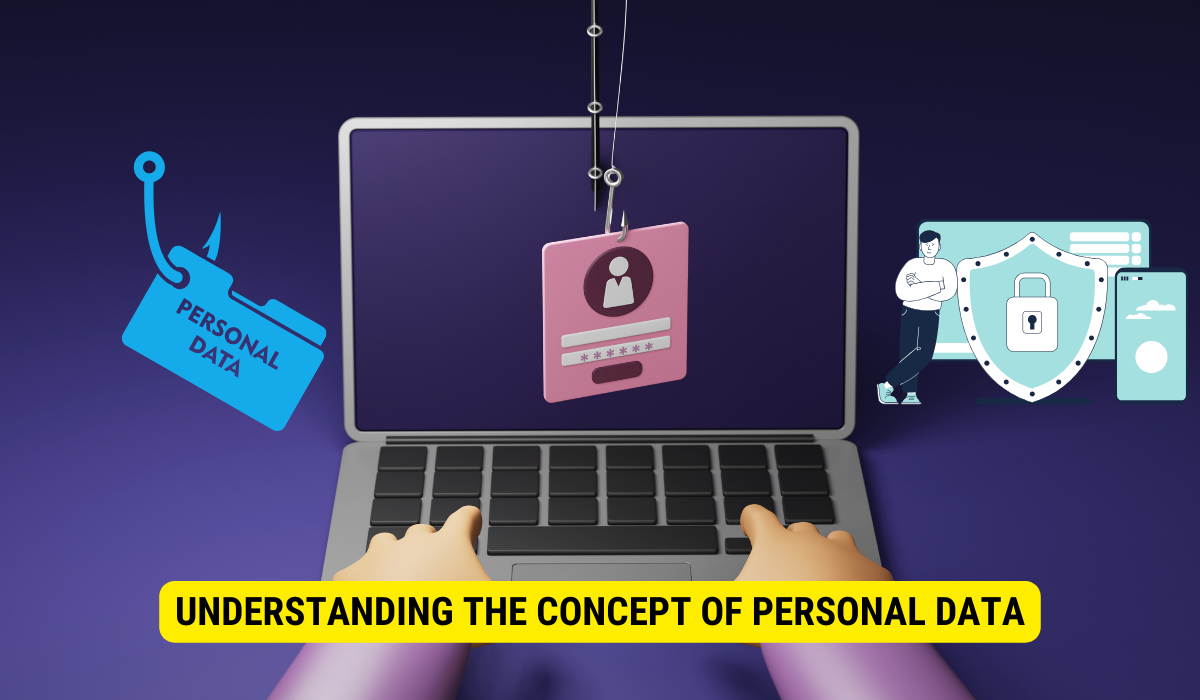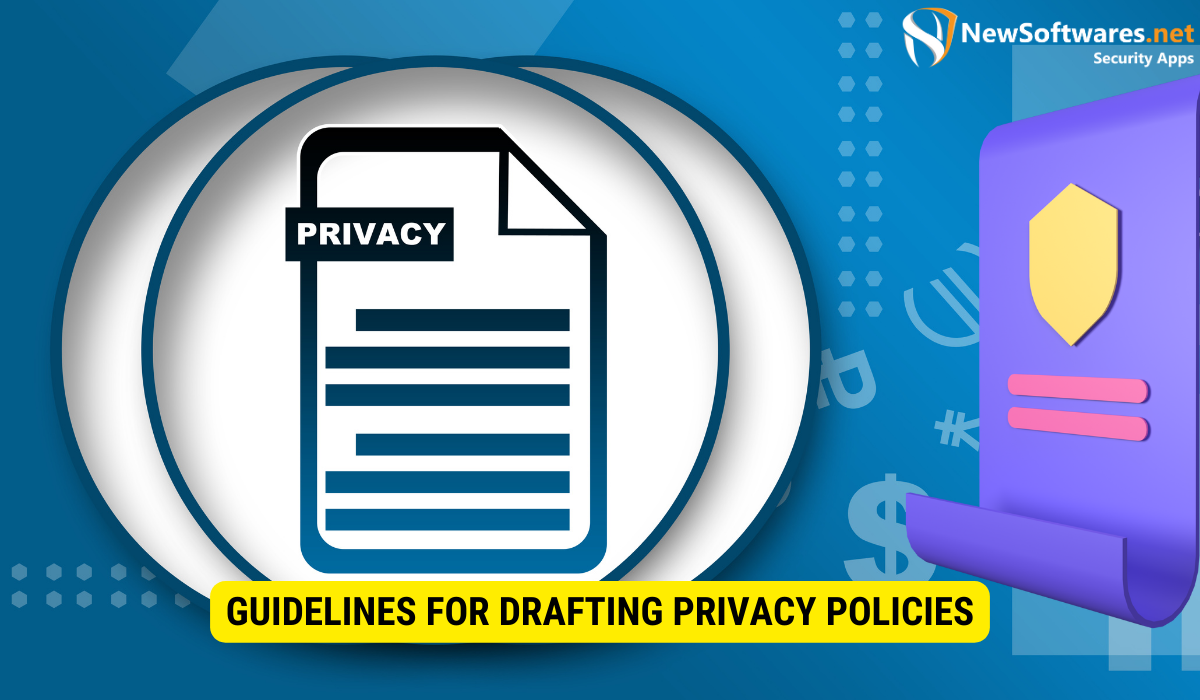Capitalization of “personal data” in a privacy policy is not a strict requirement, but it can enhance readability and emphasize the term’s importance.
It is imperative to pay meticulous attention to the details of privacy policies, including capitalization. Companies and organizations often wonder whether personal data should be capitalized in their privacy policies. Together, we will delve into the concept of personal data, the role of capitalization in legal documents, the need for capitalization of personal data, expert opinions on the matter, and guidelines for drafting privacy policies.
Understanding the Concept of Personal Data

Before delving into the complexities of capitalization, it is vital to grasp the concept of personal data. Personal data refers to any information that relates to an identifiable individual. This includes but is not limited to names, email addresses, phone numbers, financial information, and even IP addresses. Organizations are responsible for protecting and handling personal data with utmost care.
Talking about personal data, we refer to an immense array of information that can reveal a person’s identity. It goes beyond basic contact details and extends to sensitive data such as medical records, social security numbers, and even biometric information. In today’s digital age, where data breaches and identity theft are on the rise, understanding the importance of personal data protection is crucial.
Definition of Personal Data
The definition of personal data can exhibit slight variations depending on the relevant privacy laws and regulations. Nevertheless, personal data typically includes any data that has the potential to identify an individual, either directly or indirectly. This specific delineation forms the basis for the development of thorough privacy policies.
It is important to note that personal data can also include less obvious identifiers, such as online usernames, geolocation data, and browsing history. These seemingly innocuous pieces of information can paint a detailed picture of an individual’s preferences, habits, and even personality traits. Therefore, organizations must be diligent in recognizing and protecting all forms of personal data.
Importance of Personal Data in Privacy Policies
Personal data is critical in privacy policies, forming the core subject matter. These policies outline how organizations collect, use, store, and disclose personal data. They provide individuals with a clear understanding of their rights and the measures taken to safeguard their information. Capitalization, in this context, is an essential component that adds clarity and ensures consistency throughout the policy.
Privacy policies are not just legal jargon; they establish trust between organizations and individuals. By clearly defining how personal data is handled, organizations demonstrate their commitment to protecting privacy and maintaining transparency. Privacy policies also serve as a reference point for individuals to exercise their rights, such as access, rectify, or delete their data.
Moreover, privacy policies are not static documents. They need to evolve alongside technological advancements and changing regulatory landscapes. Organizations must regularly review and update their privacy policies to address emerging privacy concerns and comply with new laws. By doing so, they ensure that their practices align with the evolving expectations of individuals and regulators.
In conclusion, personal data is a broad and encompassing term that includes various types of information that can identify individuals. Understanding the concept of personal data is crucial for organizations to fulfill their responsibilities in protecting and handling data securely. Privacy policies play a pivotal role in outlining how personal data is managed, and capitalization helps ensure clarity and consistency throughout these policies.
The Role of Capitalization in Legal Documents
Capitalization is fundamental to legal writing, contributing to readability and comprehension. It helps distinguish terms of art, defined terms, and headings from regular text. Understanding the general rules of capitalization is crucial before addressing its specific application in privacy policies.
General Rules for Capitalization
In legal documents, such as privacy policies, the first word of a sentence, headings, subheadings, proper nouns, and defined terms are generally capitalized. On the other hand, unless specifically defined, common nouns are typically written in lowercase. It is important to follow these rules to maintain consistency and ensure the privacy policy is easily understandable by all parties involved.
Capitalization in Privacy Policies
When it comes to capitalization in privacy policies, the approach can vary. Some organizations capitalize on all instances of personal data, while others opt for consistent lowercasing. While there is no universal consensus, adopting a clear and consistent approach throughout the document is advisable – capitalizing or not capitalizing personal data to maintain readability and avoid confusion.
Analyzing the Need for Capitalization of Personal Data
The decision of whether or not to capitalize on personal data is not a trivial one. It requires careful consideration and analysis of the potential pros and cons and the legal implications of this choice.
Pros and Cons of Capitalizing Personal Data
Capitalizing personal data can help improve readability and make it stand out within a privacy policy. Doing so signals readers that personal data is important and requires extra attention. However, excessively capitalizing personal data throughout the document may create visual clutter and hinder text flow. It is crucial to strike a balance that enhances comprehension without overwhelming the reader.
Legal Implications of Capitalization
From a legal perspective, capitalizing personal data may have implications. While there is no specific legal requirement mandating the capitalization of personal data, inconsistency or ambiguity in the usage of capitalization might lead to misinterpretation or confusion. It is essential to align with the legal requirements of your jurisdiction and ensure that the policy accurately reflects the intended meaning.
Expert Opinions on Capitalization in Privacy Policies
Seeking insights from legal experts and understanding tech industry perspectives can be beneficial when deciding on the capitalization approach in privacy policies.
Legal Experts’ Vi0ews
Legal experts have varying opinions on capitalization in privacy policies. Some argue that capitalizing personal data helps underscore its importance, reinforces transparency, and aids comprehension. Others advocate for consistent lowercasing, as it aligns with the usage in other legal texts and reduces visual distractions. It is advisable to consult legal experts to determine the best approach for your organization.
Tech Industry Perspectives
The tech industry is no stranger to addressing privacy concerns. Industry experts recognize the importance of clear and concise privacy policies to foster consumer trust. While there may not be a unanimous stance on capitalization, many advocate for simplicity and readability in privacy policies. Clarity and transparency, regardless of the capitalization choice, are the key elements that resonate with tech industry perspectives.
Guidelines for Drafting Privacy Policies
Following best practices to ensure compliance, clarity, and effectiveness is crucial when drafting privacy policies.
Best Practices for Privacy Policy Drafting
Consider the following best practices when drafting privacy policies:
- Use clear and concise language that is easily understood by the targeted audience.
- Organize the policy logically and user-friendly, using headings and subheadings to improve readability.
- Align with applicable privacy laws and regulations, taking into account the legal requirements of your jurisdiction.
- Regularly update and review the policy to keep it current and accurate.
- Provide contact information for individuals to reach out with privacy-related inquiries or concerns.
Ensuring Compliance and Clarity in Privacy Policies
While capitalization is an important consideration, it should not overshadow the primary objectives of privacy policies – compliance and clarity. Regardless of the chosen capitalization approach, the policy must align with applicable laws, accurately reflect the organization’s data handling practices, and communicate the rights and responsibilities of the organization and the individuals whose data is being collected.
Key Takeaways
- Personal data refers to information about an identifiable individual and is fundamental to privacy policies.
- Capitalization, including privacy policies, is important in legal documents to enhance readability and distinguish key terms and headings.
- The decision to capitalize on personal data should be made after evaluating the potential pros and cons and the legal implications.
- Legal experts and tech industry perspectives provide valuable insights when considering the capitalization approach.
- When drafting privacy policies, it is crucial to follow best practices, ensuring compliance, clarity, and user-friendliness.
FAQs
Should I capitalize personal data in my privacy policy?
There is no definitive answer to this question. While capitalizing on personal data can bring attention to its importance, it is equally important to maintain readability and clarity throughout the policy. Consider the pros and cons, consult legal experts, and align with industry best practices before deciding.
Can inconsistent capitalization of personal data create legal issues?
Inconsistency in capitalization may not necessarily create legal issues on its own. However, it could lead to ambiguity or misinterpretation, potentially affecting the legal enforceability and effectiveness of the privacy policy. It is crucial to align with legal requirements and ensure clarity in the chosen capitalization approach.
What are the best practices for privacy policy drafting?
Best practices for privacy policy drafting include using clear language, organizing the policy logically, aligning with applicable laws, regularly updating the policy, and providing contact information for privacy-related inquiries. These practices and the chosen capitalization approach contribute to a comprehensive and effective privacy policy.
Conclusion
Organizations can effectively communicate their data-handling practices by addressing the nuances surrounding capitalization in privacy policies while maintaining compliance and clarity. Careful consideration of the various perspectives, adherence to best practices, and consultation with experts can help organizations develop privacy policies that instill confidence in individuals and build trust.

